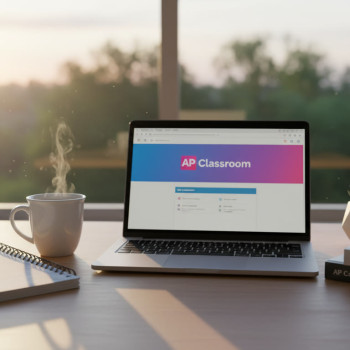Why This Comparison Matters
If you or your child is aiming for Rutgers–New Brunswick — congrats: it’s a popular, rigorous choice with many pathways. Two of the most common entry points are the School of Arts and Sciences (SAS) and the School of Engineering (SOE). Both schools value AP exams, but they often treat AP credit and placement differently because of curriculum structure, major requirements, and professional accreditation standards. Choosing the smarter path for your AP strategy can save you time, reduce stress your first year, and open up room in your schedule for research, internships, or a double major.

Who this guide is for
This blog is for high school students preparing AP exams, their parents, and counselors trying to understand tradeoffs between SAS and SOE at Rutgers–New Brunswick. You’ll get: realistic expectations about AP credit, a comparison framework, study and score-sending tactics, and practical next steps you can act on today. Along the way I’ll mention how personalized supports — like Sparkl’s 1-on-1 guidance, tailored study plans, expert tutors, and AI-driven insights — can fit into your plan if you want extra structure.
Big-picture differences: SAS vs SOE
Before we dive into AP specifics, let’s establish the broad distinctions that influence how AP exams are used.
- Curriculum rigidity: Engineering programs tend to have very structured sequences (calculus, physics, required engineering core). That often means less flexibility to skip required courses, even when you have AP credit — because later courses assume you took particular sections or labs.
- Credit vs placement: Some faculties award course credit (which reduces total credits needed for graduation), while others offer placement (so you skip an introductory course but don’t earn credit towards your degree). SAS often has more opportunity for both, while SOE may prioritize placement but be more conservative about awarding transferable credit for certain engineering classes.
- Accreditation and prerequisites: Engineering programs must satisfy accreditation standards, which can make departments cautious about accepting AP scores for upper-level requirements.
How to interpret AP policy language
When you look at a college AP policy you’ll see terms like “credit,” “placement,” “waiver,” and “equivalency.” Here’s how to read them:
- Credit: Earns you college credits toward graduation.
- Placement: Lets you skip an introductory class but may not give credit hours.
- Waiver: Removes a program requirement; sometimes used in engineering curricula.
- Equivalency: The AP score is considered equivalent to a specific college course.
Typical AP exams that matter most
For students targeting SAS or SOE, these AP exams are usually the most impactful:
- Calculus AB and BC — calculus sequence credit or placement (critical for SOE).
- Physics 1, Physics 2, Physics C (Mechanics and Electricity & Magnetism) — especially important for engineering majors.
- Chemistry and Biology — useful for majors in natural sciences or certain engineering tracks like chemical engineering.
- Computer Science A — increasingly relevant for SE and some engineering concentrations.
- Statistics — useful for social sciences, data science tracks, and engineering electives.
Example: Why Calculus BC often matters more to SOE
Engineering sequences often assume you arrive having completed single-variable calculus up through techniques that are covered in BC (or at least AB with an additional course). For many SOE students, placing out of first-year calculus frees up room to take engineering design, lab-based courses, or even an elective in CS or statistics. That said, some engineering departments still require you to take their department’s version of a calculus-based physics lab — which AP credit won’t always replace.
AP credit and placement: realistic expectations
Every student hoping to leverage AP scores should set goals that are ambitious but realistic. Here’s what to expect:
- Higher scores (4–5) give you the best chance at earning credit or advanced placement.
- Different departments interpret scores differently; a 4 might earn credit in SAS but only placement in SOE.
- Even when AP grants placement, departments may still require you to take a course in their sequence to satisfy major accreditation or lab requirements.
Practical table: Illustrative comparison of AP outcomes for SAS vs SOE
The table below is illustrative — actual policies change and you should verify specifics with Rutgers–New Brunswick and the relevant department. Use it as a modeling tool to plan conversations with admissions, registrars, and academic advisors.
| AP Exam | Likely Outcome in SAS (Arts & Sciences) | Likely Outcome in SOE (Engineering) |
|---|---|---|
| Calculus AB | Placement into next calculus course or 3–4 credits for scores ≥4 | Often placement; credit possible but sometimes departmental calculus still required |
| Calculus BC | Equivalent to two-semester calculus; strong chance of credit/placement | High chance of placement out of first-year calculus; verify lab/prereq expectations |
| Physics C (Mech/E&M) | May count toward physics sequences; credit/placement varies | Valuable for mechanics/electronics tracks; often used for placement |
| Computer Science A | Possible elective credit or placement in intro CS | Useful for CS minors or electives; placement into intro CS courses common |
| Chemistry | Possible credit for intro chemistry courses in SAS | May not replace lab-based engineering chemistry requirements |
How to plan your AP schedule in high school
Don’t pick AP classes only to impress colleges. Let AP serve both short-term learning and long-term strategy.
- Start with a strong foundation: If engineering is the goal, prioritize calculus and the physics APs early so you can take the AP exams when the material is fresh.
- Balance challenge with depth: Taking five AP courses in one year looks impressive but can dilute your learning. It’s better to master 2–3 exams and earn strong 4–5 scores than get mediocre scores across more exams.
- Use APs to explore majors: For students unsure between SAS majors or engineering, APs like Statistics, Computer Science, and Biology can reveal interests without a college-level commitment.
- Plan for retakes thoughtfully: You can’t retake the same AP exam many times without repeating a course; instead, strengthen knowledge through prep and targeted review if you plan to improve your score.
Study strategies that actually work
Effective AP study is not about cramming — it’s about targeted, active practice. Try these approaches:
- Timetabled practice exams: Simulate test day conditions at least twice for each subject. Then grade, analyze, and correct patterns of error.
- Concept maps: Make one-page maps for each big topic — derivatives, Newton’s laws, circuit analysis — and test yourself from them.
- Spacing and interleaving: Mix problem types and spread sessions; it’s stronger for long-term retention than massed practice.
- Targeted weaknesses: After a practice test, create a 2-week plan focused only on your weakest 20% of topics — that’s where most score gains live.
How and when to send AP scores
AP scores can be sent to colleges through official score reports. A smart timeline:
- Send scores as soon as you have them if you’re applying to get credit or placement for your intended freshman year schedule.
- Some students wait to see final offers and financial packages; if you do, be sure to check the college’s deadline for accepting AP credit — it isn’t always late in the summer.
- Remember many students get one free score send yearly — use it wisely.
Tips for communicating with Rutgers advisors
When you contact department advisors or the registrar at Rutgers, be clear and prepared:
- State your intended major (SAS or SOE) and list the AP exams and scores you expect to send.
- Ask explicitly whether the AP score equals credit, placement, or both, and whether any departmental exams or placement tests are still required.
- Request documentation (an email or policy page) that clarifies whether AP credit will count toward degree requirements or only for elective/transfer credit.
A parent’s checklist: supporting your student
Parents often ask how they can help without micromanaging. Here’s a calm, practical checklist:
- Help build a realistic study schedule and protect it from extracurricular overload the month before exams.
- Encourage planning conversations with counselors about how AP credit feeds into graduation timelines and major requirements.
- Consider targeted tutoring if the student struggles in foundational areas — a few focused sessions can be more effective than general help. Sparkl’s personalized tutoring model (1-on-1 guidance, tailored study plans, expert tutors, AI-driven insights) can be a fit here if you want a structured boost without the logistics hassle.
- Remind students to take care of basics: sleep, nutrition, and short recovery breaks during study blocks.

What if AP credit doesn’t count the way you hoped?
It happens. Departments sometimes won’t accept AP scores for major prerequisites or lab-based courses. When this occurs, you still have options:
- Use placement to your advantage: Even without credit, skipping an introductory course can free time for electives, research, or an internship that strengthens your major profile.
- Appeal or petition: Some departments allow appeals or assessment exams to demonstrate mastery and secure credit; this is common in the first weeks of classes.
- Plan for summer coursework: If you need to catch up or want credit, a targeted community college or Rutgers summer course may be useful — but weigh cost and transferability first.
Case studies: three real-world student approaches
Below are composite case studies (inspired by common scenarios) to help you see how choices play out.
Case 1 — Maria: Aspiring Mechanical Engineer (SOE)
Maria took BC Calculus and Physics C in high school and scored 5s. She sends scores and places out of first-year calculus. Because engineering labs and departmental sequences remain required, she uses the freed time to take an introductory programming course and join a design lab her first semester — boosting her practical resume. She also consulted a tutor for targeted review before the APs; that focus helped her secure the strong scores she needed.
Case 2 — Ajay: Undecided Between Physics and Computer Science (SAS)
Ajay took Calculus AB, Physics 1, and Computer Science A. He earns placement in calculus and placement/credit for intro CS in SAS. With extra elective room, Ajay explores an upper-level CS course and an astrophysics seminar, helping him decide his major before sophomore year.
Case 3 — Leila: Biology Major with Pre-Health Interests (SAS)
Leila earned a 4 on AP Biology and a 3 on Chemistry. Biology credit allows her to jump into advanced lab courses earlier, but she still takes Rutgers’ required general chemistry lab for certain program prerequisites. Her early advanced lab experiences help her land a summer research assistant position.
Common mistakes and how to avoid them
- Assuming all AP credit transfers the same way: Don’t assume a score of 4 will equal credit across departments — check each department’s policy.
- Overloading senior year to chase more AP titles: If your motivation is depth and skill, fewer high-quality APs are better than many weak ones.
- Waiting to send scores without checking deadlines: Some deadlines for credit or placement are earlier than you expect — confirm with the college.
How to get tailored help that actually moves the needle
Generic resources are fine for broad review, but when small score changes make a big difference in credit and placement, targeted help pays off. Here’s how to choose support:
- Choose 1-on-1 tutoring for pinpointed weaknesses: Look for tutors who can build a tailored study plan and simulate AP-style questions under timed conditions.
- Use diagnostics smartly: Start with a practice exam to identify the 20% of topics causing 80% of errors. Then focus.
- Blend human coaching with tech: Tools that track progress and give micro-feedback speed up improvement. If you want a streamlined option, Sparkl’s combination of expert tutors and AI-driven insights is designed to provide that mix — personalized pacing, exam simulations, and progress analytics.
Final checklist before exam day and college decisions
Print this checklist and run through it with your student the week of the AP exam and again when you’re deciding what scores to send to Rutgers.
- Have you identified which AP exams map to major prerequisites for SAS and SOE?
- Do you know whether Rutgers will treat your AP score as credit, placement, or both for the specific department you plan to enter?
- Have you taken at least two full-length timed practice exams and analyzed them thoroughly?
- Do you have a plan for sending scores, and have you confirmed any relevant deadlines for credit/placement?
- If you’re concerned about score outcomes, have you discussed targeted tutoring or a department petition appeal process?
Parting advice: keep perspective and aim for growth
AP exams are tools — powerful ones — but they’re not the only path to success at Rutgers–New Brunswick. Whether you’re aiming for SAS or SOE, the right combination of planning, targeted study, and smart conversations with advisors will get you farther than last-minute effort or assumptions about credit. Use APs to build deeper knowledge, not just credentials.
If structured support would help, consider options that provide individualized attention and measurable progress. Personalized tutoring, thoughtful practice exams, and clear checklists can reduce uncertainty and increase confidence. For families who want that blend of human expertise and data-driven insight, Sparkl’s model — 1-on-1 guidance, tailored study plans, expert tutors, and AI-driven insights — can be a helpful part of a balanced prep strategy, used only where it fits naturally into a student’s workflow.
Next steps
Today, do two quick things:
- Make a list of the AP exams you plan to take and map them to your intended major (SAS or SOE). This will clarify priorities.
- Contact the Rutgers department or academic advisor for the major you want and ask for written clarification about AP credit vs placement — keep that email for your records.
Good luck — the path from AP exams to a smooth, enriching start at Rutgers is a marathon, not a sprint. With thoughtful prep, clear priorities, and a few smart conversations you’ll arrive on campus ready to dive into the work that matters to you.
Ready to plan your next steps? Start with a practice diagnostic, build a two-week targeted study plan, and schedule one focused tutoring session to lock in your weak spots. Small, consistent moves create the biggest gains.
















No Comments
Leave a comment Cancel